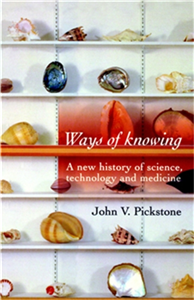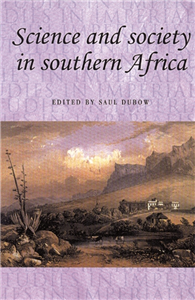Your Search Results
-
Arab Scientific Publishers, Inc.
Arab Scientific Publishers (ASP) publishes award winning books that cater to all ages and interests. The subject matter is wide ranging from drawing and cooking books, to Mayo Clinic references, Microsoft Training Kits, and bestselling novels, targeting children, teenagers, students, adults, and professionals. A r a b S c i e n t i f i c P u b l i s h e r s (ASP) is a fully consolidated commercial Printing and Publishing powerhouse. The company is involved in all activities along the value chain from concept creation to distribution. The company’s proven track record in delivering first-rate publishing and printing services will serve as a catalyst to grow the company into a global digital enterprise. Our vision is that ASP will become a strategic holding structure with international subsidiaries all around the globe.
View Rights Portal
-
Promoted ContentJuly 2005
Was macht das Licht, wenn's dunkel ist?
Experten beantworten weltbewegende Fragen
by Herausgegeben von Scientific American; Deutsch Meyer, Olivia
-
Promoted Content
-
 Trusted Partner
Children's & YADecember 2023
Trusted Partner
Children's & YADecember 2023QuBuild
A guided approach to asking better scientific questions in primary schools
by Lynne Bianchi, Tina Whittaker
This book brings a new classroom approach for primary teachers to teach the explicit knowledge of scientific question-asking. This is an essential skill when children are involved in finding out about the world around them through science enquiry. Challenging the assumption that because children ask lots of questions in science, this automatically leads to meaningful learning of the enquiry curriculum, QuBuild is important for all children developing as scientific thinkers. It outlines an approach to explicitly plan for, practice and develop the craft of scientific question-asking. Unlock your children's science learning potential by exploring the QuBuild Process.
-
 Trusted Partner
Trusted Partner
Wissenschaft ist das, was auch dann gilt, wenn man nicht dran glaubt
Das große Jubelbuch der Science Busters
by Science Busters
-
 Trusted Partner
Trusted Partner
-
 Trusted Partner
The ArtsSeptember 2020
Trusted Partner
The ArtsSeptember 2020Science in performance
Theatre and the politics of engagement
by Simon Parry
This electronic version has been made available under a Creative Commons (BY-NC-ND) open access license. This book is about science in theatre and performance. It explores how theatre and performance engage with emerging scientific themes from artificial intelligence to genetics and climate change. The book covers a wide range of performance forms from Broadway musicals to educational theatre, from Somali drama to grime videos. It features work by pioneering companies including Gob Squad, Headlong Theatre and Theatre of Debate as well as offering fresh analysis of global blockbusters such as Wicked and Urinetown. The book offers detailed description and analysis of theatre and performance practices as well as broader commentary on the politics of theatre as public engagement with science. Science in performance is essential reading for researchers, students and practitioners working between science and the arts within fields such as theatre and performance studies, science communication, interdisciplinary arts and health humanities.
-
 Trusted Partner
Humanities & Social SciencesJanuary 2024
Trusted Partner
Humanities & Social SciencesJanuary 2024Dog politics
Species stories and the animal sciences
by Mariam Motamedi Fraser
Do dogs belong with humans? Scientific accounts of dogs' 'species story,' in which contemporary dog-human relations are naturalised with reference to dogs' evolutionary becoming, suggest that they do. Dog politics dissects this story. This book offers a rich empirical analysis and critique of the development and consolidation of dogs' species story in science, asking what evidence exists to support it, and what practical consequences, for dogs, follow from it. It explores how this story is woven into broader scientific shifts in understandings of species, animals, and animal behaviours, and how such shifts were informed by and informed transformative political events, including slavery and colonialism, the Second World War and its aftermath, and the emergence of anti-racist movements in the twentieth and twenty-first centuries. The book pays particular attention to how species-thinking bears on 'race,' racism, and individuals.
-
 Trusted Partner
Trusted Partner
-
 Trusted Partner
Trusted Partner
-
 Trusted Partner
Trusted Partner
-
 Trusted Partner
The ArtsSeptember 2020
Trusted Partner
The ArtsSeptember 2020Science in performance
by Maggie B. Gale, Maria M. Delgado, Peter Lichtenfels, Simon Parry
-
 Trusted Partner
Science & MathematicsAugust 2016
Trusted Partner
Science & MathematicsAugust 2016Scientific governance in Britain, 1914–79
by Charlotte Sleigh, Don Leggett
-
 Trusted Partner
October 2022
Trusted Partner
October 2022Ernst Haeckel
Zoologist, artist, philosopher and freethinker
by Rainer Willmann
Ernst Haeckel (1834–1919) is one of the most famous and influential researchers of all times. This brilliant biography by Rainer Willmann recounts Haeckel's fascinating life for science and his fight for freedom of thought. Haeckel is a vehement advocate of Darwinian doctrine and develops it further, which is why he is fiercely attacked not only by the church but also by his fellow scientists. Among other things, we owe to Haeckel the freedom of research and teaching that we take so much for granted. That he was also a talented artist is proven by his drawings of marine organisms ... The gripping and highly interesting life story of an extraordinary freethinker and scientist.
-
 Trusted Partner
May 2021
Trusted Partner
May 2021The Humane Idea
Rudolf Virchow and Hermann von Helmholtz. The legacy of the Charité
by Ernst Peter Fischer, Detlev Ganten
Two of today’s leading scientists, Ernst Peter Fischer and Detlev Ganten, reconfirm the legacy of two influential 19th-century researchers. To mark the 200th birthday of Rudolf Virchow (1821–1902) and Hermann von Helmholtz (1821–1894), they explain why pioneering research and holistic thinking are still relevant for health science and practice, and for a sustainable balance of people, society and the environment. The historical achievement of Virchow and Helmholtz continues today with the work of researchers like Emmanuelle Charpentier and Christian Drosten, so ensuring that the humane idea continues to be fruitful in the future. An insight into the history of medical science.
-
 Trusted Partner
May 2021
Trusted Partner
May 2021On the Amazement of the World
(Im-)Possibilities of science
by Ernst Peter Fischer
The current debate on the corona virus shows that knowledge, and with that science, plays a central role in the struggle to preserve humanity. Knowledge provides opportunities to influence the world, for better or worse. In times when emotions and appeals to baser instincts often triumph over reason and humanity, Ernst Peter Fischer reminds us of the goal of science that has been pursued since the Enlightenment: “to facilitate the conditions of human existence”. In his new book, the bestselling author takes us on an instructive, varied and enjoyable journey through the history of knowledge and science.
-
 Trusted Partner
Humanities & Social SciencesDecember 2000
Trusted Partner
Humanities & Social SciencesDecember 2000Ways of Knowing
A new history of science, technology and medicine
by John V. Pickstone, Martin Hargreaves
Discusses the historical development of science, technology and medicine in Western Europe and North America from the Renaissance to the present. Identifies four principle ways of knowing within specific periods: natural history in the eighteenth century analysis following the French Revolution experiment in the epoch of modernism the current presence of technoscience. Balances the historical exposition of natural magic and natural theology with a philosophical interpretation of the Scientific Revolution and reflective comments on Foucault and Collingwood. Strikes a balance between theoretical discussion and empirical illustration. Redefines the geography of science, technology and medicine. ;
-
 Trusted Partner
Trusted Partner
-
 Trusted Partner
Humanities & Social SciencesJune 2009
Trusted Partner
Humanities & Social SciencesJune 2009Science and society in southern Africa
by Andrew Thompson, Saul Dubow, John Mackenzie
This collection, dealing with case studies drawn from South Africa, Zimbabwe, Mozambique and Mauritius, examines the relationship between scientific claims and practices, and the exercise of colonial power. It challenges conventional views that portray science as a detached mode of reasoning with the capacity to confer benefits in a more or less even-handed manner. That science has the potential to further the collective good is not fundamentally at issue, but science can also be seen as complicit in processes of colonial domination. Not only did science assist in bolstering aspects of colonial power and exploitation, it also possessed a significant ideological component: it offered a means of legitimating colonial authority by counter-poising Western rationality to native superstition and it served to enhance the self-image of colonial or settler elites in important respects. This innovative volume ranges broadly through topics such as statistics, medicine, eugenics, agriculture, entomology and botany. ;
-
 Trusted Partner
Humanities & Social SciencesMarch 2017
Trusted Partner
Humanities & Social SciencesMarch 2017Science and society in southern Africa
by Saul Dubow
This collection, dealing with case studies drawn from South Africa, Zimbabwe, Mozambique and Mauritius, examines the relationship between scientific claims and practices, and the exercise of colonial power. It challenges conventional views that portray science as a detached mode of reasoning with the capacity to confer benefits in a more or less even-handed manner. That science has the potential to further the collective good is not fundamentally at issue, but science can also be seen as complicit in processes of colonial domination. Not only did science assist in bolstering aspects of colonial power and exploitation, it also possessed a significant ideological component: it offered a means of legitimating colonial authority by counter-poising Western rationality to native superstition and it served to enhance the self-image of colonial or settler elites in important respects. This innovative volume ranges broadly through topics such as statistics, medicine, eugenics, agriculture, entomology and botany.
-
 Trusted Partner
2022
Trusted Partner
2022Integrative Oncology
A consultation manual for physicians and pharmacists
by Prof. Dr. Harald Matthes, Dr. Friedemann Schad and Prof. Dr. Ralf-Dieter Hofheinz
Conventional oncological treatment regimens predominantly target the pathogenesis of the disease and are thereby often deficient – a multidimensional view of the whole person and the therapeutic relationship opens up new, complementary treatment options. Scientific data and sound experience of a meaningful holistic concept are now available. 39 experts in their specialist disciplines present the principles of integrative oncology: - Carcinogenesis, what it means to be human, deficiencies of conventional therapy - Integrative therapy systems, scientific confirmation - Specialised drugs, evaluation of specific disease situations - Common malignancies, treatment - Oncological guidelines Conventional and complementary medicine can draw inspiration from each other – we broaden the view.






























